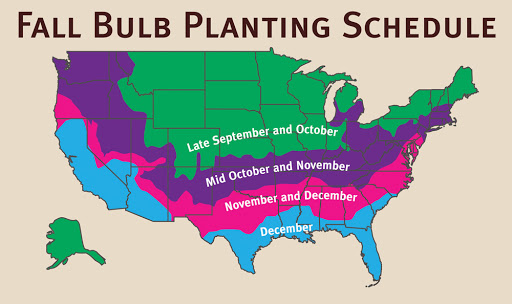Reiman Gardens switched to A.D.R. Bulbs 12 years ago and has never looked back. The bulbs are high quality and the customer service is exceptional. Chris and Philipp are always willing to answer my many questions! We take pride in supporting one of the last remaining bulb farms that grows and exports.
Sarah Rummery
, Reiman Gardens
« Previous Plant | Next Plant »
Tulipa Lily Flowering 'Fire Wings'
Tulip
Fire Wings is a lily-flowered tulip with bright yellow petals streaked with fire-engine red flames. Its pointed, winged petals open dramatically in sunlight, creating a bold display. Blooming in mid to late spring, it reaches 20 to 22 inches tall and thrives in full sun. This variety is excellent for borders, containers, and cut flower arrangements.
Tulipa Calculator
When should I plant Tulipa Lily Flowering 'Fire Wings'?

Growing and Maintenance Tips for Tulipa Lily Flowering 'Fire Wings'
Planting: Plant in fall when soil temperatures drop below 55°F. Set bulbs 6–8 inches deep with the pointed end facing up. Lily-flowered tulips thrive in locations with some wind protection to preserve their tall, slender forms.
Spacing: Space bulbs 4–6 inches apart. Cluster 10 or more together for dramatic impact—their tapered blooms and elegant silhouette are especially striking en masse.
Light: Full sun encourages upright growth and clean flower form. While tolerant of light shade, blooms may elongate or bend without sufficient light.
Soil: Well-drained, neutral to slightly acidic soil (pH 6–7) is ideal. Avoid soggy areas, which can compromise stem strength and bulb health.
Watering: Water after planting to settle the soil. During spring growth, irrigate only during prolonged dry periods—excess moisture can weaken stems and flowers.
Temperature & Dormancy: Requires 12–16 weeks of cold (below 50°F) to establish strong roots and prepare for bloom.
Fertilization: Apply a balanced bulb fertilizer at planting and again in spring as foliage emerges to support tall stems and consistent bloom quality.
Pests: Low-maintenance, but protection is advised. Squirrels can be deterred with mulch or mesh. Deer will eat buds and emerging foliage—especially in early spring—so apply repellents or install fencing in vulnerable areas.
Disease: To prevent Botrytis (Tulip Fire), use only healthy bulbs and plant in sunny, well-aerated spots. Avoid overhead watering. Remove and destroy any infected foliage—never compost it. Rotate sites annually and do not replant in affected locations for at least three years.





Check back soon for additional details.